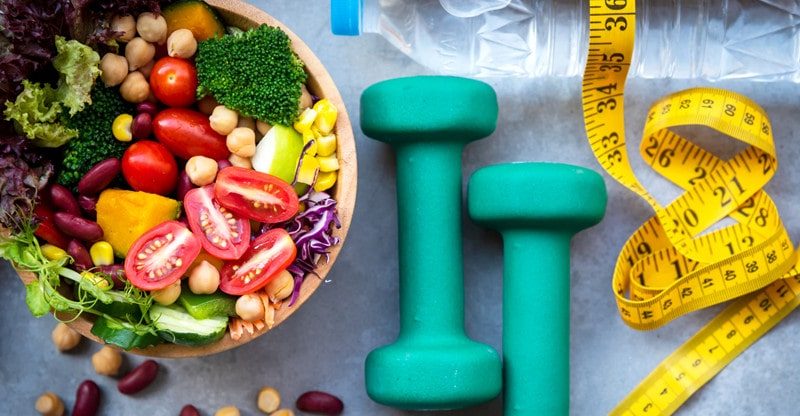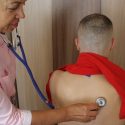5 Ways to Get Energy While Fasting
Taking care of your health is one of the most important things you can do for yourself and for your quality of life. Focusing on a balanced diet and exercise improves both your physical health and mental health. If you have struggled to lose weight, or are looking for a more disciplined alternative with your relationship to food, fasting may be a great option for your lifestyle.
Fasting can be a safe and efficient tool to use if done correctly. Using this as a tool doesn’t have to mean that you stop eating completely, it simply means you have certain times of the day when you focus on nutrition and giving your body fuel. Learning how the body works to break down proteins and fats can help you use food to increase energy and health.
Fasting can be draining if you don’t focus on certain things such as getting enough sleep and eating enough protein and staying hydrated, as well as certain tips from the experts to help you get energy when you fast throughout the day.
Energy Option #1: Coffee and Coffee Alternatives
Whether you are already an avid coffee enthusiast or just know your body functions better with caffeine, using caffeine as a tool during fasting is a simple and effective way to increase your energy levels. If you don’t enjoy the taste of coffee or simply want other options, there are some excellent coffee alternatives available that can give you the caffeine boost you need to keep your energy level going during a fast.
Using caffeine is a great option to help give you the energy you need to make it through the day, just make sure you know what time your body needs to have its last caffeine intake. Drinking caffeine late in the day can have a negative impact on sleep at night which is what you don’t want when you are trying to increase your energy level.
But used in the correct amount and at the correct time of day, caffeine from coffee or coffee alternatives is a great option to help get a quick energy boost.
Energy Option #2: Exercise
It may seem counterintuitive, but when you are in need of energy getting your body moving is one of the best options to increase your energy naturally. Even though movement and exercise may feel like the last thing you want to do in the middle of fasting, even a five-minute brisk walk outside can improve both your energy level and your mood.
Moving your body is also a way to naturally decrease your appetite, so as your body is adjusting to new hunger cues exercise helps as a diversion and natural appetite suppressant. If possible, get outside when getting exercise to get a double dose of both energy and vitamin d.
Energy Option #3: Stay Hydrated
One of the most important things to do while fasting is to stay hydrated. Your body is already adjusting to breaking down fat and doesn’t need the extra stress of being dehydrated. Set a goal for yourself to drink a minimum amount of ounces per day.
Sometimes during a fast along with a depleted energy level, you can feel a little nauseous as your body is adjusting. Nutrition experts recommend adding a small amount of salt to your water to help with nausea. It will help your body balance itself out and still allow you to stick to the fast.
Energy Option #4: Increase Your Body Temperature
No matter the time of year you are fasting, keeping your body temperature stable can make a big impact on your energy level when fasting. Whether you realize it or not, being cold signals to your body to slow down which naturally decreases your energy.
If you are fasting during the colder months, make sure to have layers available and focus on movement throughout the day to help with blood flow. If you’re fasting during the warmer months, make sure that when you are indoors the air conditioning isn’t contributing to lowering your body temperature. It may seem like something simple, but maintaining a stable and warm body temperature can make a major difference with your energy levels.
Energy Option #5: Take a Power Nap
If you have the time, it may be tempting to want to lay down during the day for hours to try and let your body rest. Surprisingly, taking a longer nap can actually have a negative effect on your mood and energy. Because of the way the body uses sleep cycles, when you are taking naps during the day it is best to only sleep for twenty to thirty minutes for a power nap.
Research has shown that you are much more alert and energized after a short power nap during the day than a two or three-hour snooze that can leave you feeling groggy and even more tired than before.
So if you have time in your day, a nap can help increase energy for sure. Just make sure it is a power nap and not an all-afternoon nap which will negatively impact your sleep at night. And remember to get at least seven to eight hours of nighttime sleep to help your body recharge during fasting.
As beneficial as fasting can be for your body, it can take some time to adjust. In the long run, you will actually be providing your body with more energy. But as you begin to adjust to fasting, you will likely need some help reviving your energy level. Remember that there are great options available such as coffee and coffee alternatives to help throughout the day, as well as getting up and moving and staying warm.
Having a plan and using different tools throughout the day can help take away the stress and anxiety of worrying about a lower energy level and instead help you focus on your end goal of fasting and improving your overall health.



